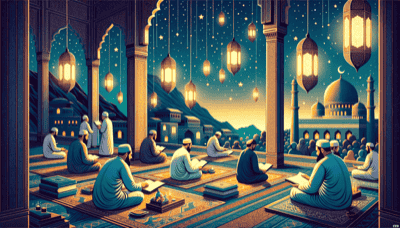We're here to help you keep count of the days to or since a date. Just click the button below and enter your chosen date to get started. Also choose the suggested days or search for a special day above #countingthedays

Overview: Laylatul Qadr, also known as the Night of Power, is considered the holiest night in the Islamic calendar. It is believed to be the night when the Quran was first revealed to Prophet Muhammad by Allah through the angel Jibreel (Gabriel). This auspicious event falls within the last ten days of Ramadan, particularly on one of the odd-numbered nights (21st, 23rd, 25th, 27th, or 29th), with many Muslims believing it most likely occurs on the 27th night.
History: The significance of Laylatul Qadr is mentioned in the Quran in Surah Al-Qadr (97:1-5), which states that this night is "better than a thousand months" and that angels descend to earth during this period. The exact date was not explicitly stated by Prophet Muhammad; hence, it encourages Muslims to seek the night through increased worship during the final ten days of Ramadan.
Traditions:
Increased Worship: Muslims across the United Kingdom engage in additional prayers and recitation of the Quran. Mosques hold special nightly prayers called Taraweeh and additional prayers known as Qiyam-ul-Layl.
Seeking Forgiveness: Many devotees spend time in introspection and seeking forgiveness for past sins.
Charitable Acts: Giving charity (Zakat and Sadaqah) is encouraged as good deeds are believed to be rewarded more generously on this night.
Community Gatherings: While some prefer solitary worship at home, others gather at mosques for communal prayers and listen to lectures about Islam.
I'tikaf: A practice where some Muslims choose to perform I'tikaf, which involves staying in a mosque for a certain number of days engaged solely in worship.
What People Do:
In addition to religious observances, families often share meals before dawn (Suhoor) and after sunset (Iftar), inviting friends or neighbors to join. Many British Muslims also take time off work or adjust their schedules during these last ten nights to fully engage with their spiritual practices. Since Laylatul Qadr does not have a fixed date, there is an air of anticipation and increased devotion throughout this period as people try to ensure they do not miss out on its blessings.